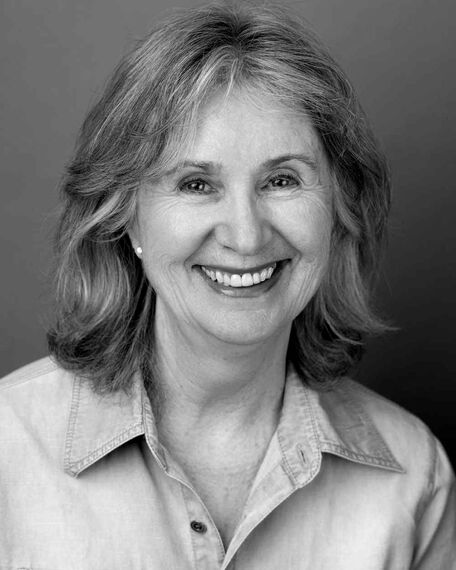
It is with great pleasure that I welcome Diana Stevan onto the website today. Diana has written four novels. Her third, Sunflowers Under Fire, was a finalist in the 2019 Whistler Independent Book Awards; a semi-finalist in the 2019 Kindle Book Awards; and received an Honorable Mention in the 2020 Writers Digest Awards for Self-published Fiction.
Alex: Tell me a bit about yourself, Diana.
Diana: I’m very practical—it’s not easy making a living as a writer. I belonged to the Manitoba Authors Association when I was twenty but I couldn’t pursue my dream back then because I had to support my husband’s return to university and we had a child. Soon after, another girl was born and two steady incomes were necessary to make ends meet. So I put my interest in writing on the back burner and didn’t write seriously until I retired. My practical nature stems from my family. I was born to immigrant parents, both Ukrainian, in Winnipeg, Manitoba. My first language was Ukrainian because my grandmother, who spoke very little English, came to live with us when I was a baby. Though I was an honours student throughout my school years, I never felt confident when it came to English and Literature classes. So, in many ways, it’s gratifying to become a writer late in life.
I’ve joked about being a Jill of all trades. I guess it’s my curiosity and my need for adventure that’s led me to try my hand at different occupations. Since I received my Bachelor of Science in Home Economics and a Master of Social Work from the University of Manitoba, I’ve worked as a psychiatric social worker, a school psychologist, a family therapist at a children’s residential centre, a home economics teacher for junior high, community college instructor, field instructor for Schools of Social Work at the University of Manitoba and University of British Columbia, a life insurance sales rep, a professional actor with credits in film and television, a professional model and a freelance sports broadcaster for CBC television.
I feel very blessed because I’m married to a wonderful man and we have two daughters and three grandchildren. I love to travel, paint, and work in the garden. And, of course, read.
Alex: Tell me a bit about yourself, Diana.
Diana: I’m very practical—it’s not easy making a living as a writer. I belonged to the Manitoba Authors Association when I was twenty but I couldn’t pursue my dream back then because I had to support my husband’s return to university and we had a child. Soon after, another girl was born and two steady incomes were necessary to make ends meet. So I put my interest in writing on the back burner and didn’t write seriously until I retired. My practical nature stems from my family. I was born to immigrant parents, both Ukrainian, in Winnipeg, Manitoba. My first language was Ukrainian because my grandmother, who spoke very little English, came to live with us when I was a baby. Though I was an honours student throughout my school years, I never felt confident when it came to English and Literature classes. So, in many ways, it’s gratifying to become a writer late in life.
I’ve joked about being a Jill of all trades. I guess it’s my curiosity and my need for adventure that’s led me to try my hand at different occupations. Since I received my Bachelor of Science in Home Economics and a Master of Social Work from the University of Manitoba, I’ve worked as a psychiatric social worker, a school psychologist, a family therapist at a children’s residential centre, a home economics teacher for junior high, community college instructor, field instructor for Schools of Social Work at the University of Manitoba and University of British Columbia, a life insurance sales rep, a professional actor with credits in film and television, a professional model and a freelance sports broadcaster for CBC television.
I feel very blessed because I’m married to a wonderful man and we have two daughters and three grandchildren. I love to travel, paint, and work in the garden. And, of course, read.
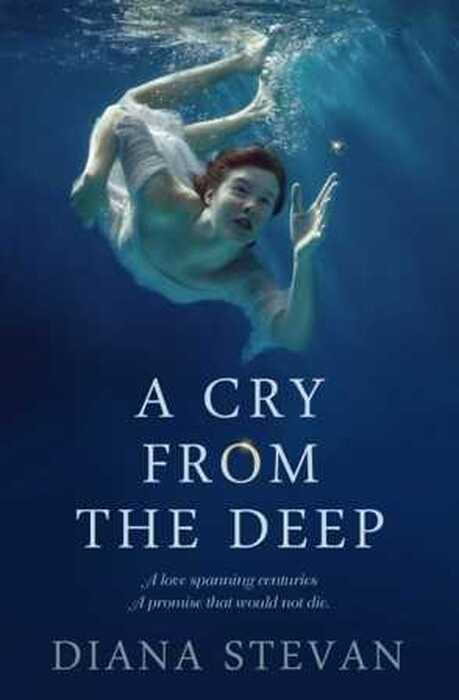
Alex: How would you describe your writing, and are there particular themes that you like to explore?
Diana: I’d describe my writing as lucid. I don’t want to bore the reader with long descriptions and I like to keep a story moving. I’m interested in what makes people tick. That comes from my twenty-five years as a family therapist and discovering there’s a whole range of normal. I like to write about how we fall in love and out of love and sometimes hurt those we love. I like to write about all of our human foibles.
Alex: Are you a writer that plans a detailed synopsis or do you set out with a vague idea and let the story unfold as you write?
Diana: It all depends on what I’m writing. When I wrote my debut novel, A Cry from the Deep, a romantic adventure and mystery, I had a beginning but little else. I ended up making my protagonist an underwater photographer, an occupation I knew nothing about. And I created a story that required so much research. Thankfully, I’d travelled to Ireland, Provence, and Manhattan, the settings of my story, so that helped enormously. Because I had no outline, I got lost in the process and got some help from an excellent substantive editor. Though an outline would’ve helped, I have no regrets about writing it without a clear idea of where I was going. I love being surprised by my characters. By what they say, who they meet, and where they take me. This was a very satisfying book to write.
The Rubber Fence, a psychological fiction, was inspired by my work on a psychiatric ward. I created a collage of characters loosely based on my experiences. I had a theme, that of the pros and cons of shock treatment and the vulnerability of both the patients and the staff, and off I went. This book was adapted from a screenplay that I’d written some time ago. I had agents on both coasts but when no one picked it up, I re-wrote the story as a novel.
Diana: I’d describe my writing as lucid. I don’t want to bore the reader with long descriptions and I like to keep a story moving. I’m interested in what makes people tick. That comes from my twenty-five years as a family therapist and discovering there’s a whole range of normal. I like to write about how we fall in love and out of love and sometimes hurt those we love. I like to write about all of our human foibles.
Alex: Are you a writer that plans a detailed synopsis or do you set out with a vague idea and let the story unfold as you write?
Diana: It all depends on what I’m writing. When I wrote my debut novel, A Cry from the Deep, a romantic adventure and mystery, I had a beginning but little else. I ended up making my protagonist an underwater photographer, an occupation I knew nothing about. And I created a story that required so much research. Thankfully, I’d travelled to Ireland, Provence, and Manhattan, the settings of my story, so that helped enormously. Because I had no outline, I got lost in the process and got some help from an excellent substantive editor. Though an outline would’ve helped, I have no regrets about writing it without a clear idea of where I was going. I love being surprised by my characters. By what they say, who they meet, and where they take me. This was a very satisfying book to write.
The Rubber Fence, a psychological fiction, was inspired by my work on a psychiatric ward. I created a collage of characters loosely based on my experiences. I had a theme, that of the pros and cons of shock treatment and the vulnerability of both the patients and the staff, and off I went. This book was adapted from a screenplay that I’d written some time ago. I had agents on both coasts but when no one picked it up, I re-wrote the story as a novel.
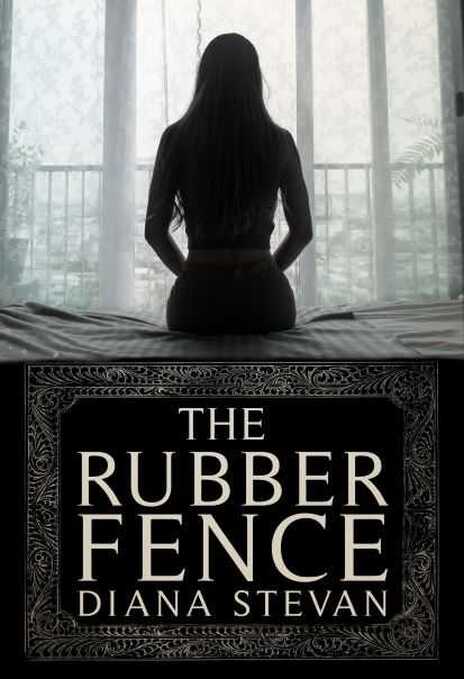
Alex: Tell us about your latest novel.
Diana: My latest novel, Lilacs in the Dust Bowl, is a sequel to the award-winning Sunflowers Under Fire. It’s the second book in Lukia’s Family Saga series. Although it’s a sequel, it can be read as a standalone. The story was inspired by my Ukrainian grandmother and her family’s ordeals when they immigrated to Canada in 1929, just before the stock market crashed and the great depression began. Facing drought, grasshopper plagues and discrimination in a new land, they endured heartache but they also found new love and good times that kept them going.
Alex: What was the first book you read?
Diana: Anne of Green Gables by Lucy Montgomery. Loved that story and I recently bought the book again, just to have it on my bookshelf.
Alex: How much research do you do and what does it usually entail?
Diana: I do a lot of research. I love the process of discovering enough rich details to bring the scenes alive. I want to immerse myself in my characters’ lives so that I’m living through what they’re living through as much as I can, if only on the page. My first book took ten years. Each of my books took years because of my need to find those details. By combing the internet and reading books that speak to those times, whether they’re non-fiction or fiction, I feel more secure in my storytelling. My research also means reaching out to people in the community.
For example, for my first book, A Cry from the Deep, I contacted marine archaeologists, Irish coast guards, the editor of National Geographic, and went out with a scuba diving team to get a sense of what preparations they had to do before they got in the water.
The Rubber Fence was easier in that I had worked on a psych ward, but since my protagonist was a psychiatric intern, I had to find out more about what becoming one entailed. And then there were the psychotropic drugs that were administered at the time; I needed to research that as well. So, even though I had knowledge of the field, there was still considerable research I had to do.
And with Lukia’s Family Saga, I was fortunate to have recorded my mother’s stories. Her anecdotes formed the bones of the story, but there were so many blanks. that required extensive research into the history of those times. Like Russia’s part in the Great War, where my grandfather served, the conditions the soldiers went through, what the fleeing farmers faced as they fled the invading Germans, the typhus epidemic and how it impacted on the people, the Bolshevik Revolution, the civil wars, life on a farm, farming methods, the list was endless. Besides online research, I visited libraries in Vancouver, Winnipeg, Toronto, New York and Stamford, Connecticut.
Diana: My latest novel, Lilacs in the Dust Bowl, is a sequel to the award-winning Sunflowers Under Fire. It’s the second book in Lukia’s Family Saga series. Although it’s a sequel, it can be read as a standalone. The story was inspired by my Ukrainian grandmother and her family’s ordeals when they immigrated to Canada in 1929, just before the stock market crashed and the great depression began. Facing drought, grasshopper plagues and discrimination in a new land, they endured heartache but they also found new love and good times that kept them going.
Alex: What was the first book you read?
Diana: Anne of Green Gables by Lucy Montgomery. Loved that story and I recently bought the book again, just to have it on my bookshelf.
Alex: How much research do you do and what does it usually entail?
Diana: I do a lot of research. I love the process of discovering enough rich details to bring the scenes alive. I want to immerse myself in my characters’ lives so that I’m living through what they’re living through as much as I can, if only on the page. My first book took ten years. Each of my books took years because of my need to find those details. By combing the internet and reading books that speak to those times, whether they’re non-fiction or fiction, I feel more secure in my storytelling. My research also means reaching out to people in the community.
For example, for my first book, A Cry from the Deep, I contacted marine archaeologists, Irish coast guards, the editor of National Geographic, and went out with a scuba diving team to get a sense of what preparations they had to do before they got in the water.
The Rubber Fence was easier in that I had worked on a psych ward, but since my protagonist was a psychiatric intern, I had to find out more about what becoming one entailed. And then there were the psychotropic drugs that were administered at the time; I needed to research that as well. So, even though I had knowledge of the field, there was still considerable research I had to do.
And with Lukia’s Family Saga, I was fortunate to have recorded my mother’s stories. Her anecdotes formed the bones of the story, but there were so many blanks. that required extensive research into the history of those times. Like Russia’s part in the Great War, where my grandfather served, the conditions the soldiers went through, what the fleeing farmers faced as they fled the invading Germans, the typhus epidemic and how it impacted on the people, the Bolshevik Revolution, the civil wars, life on a farm, farming methods, the list was endless. Besides online research, I visited libraries in Vancouver, Winnipeg, Toronto, New York and Stamford, Connecticut.
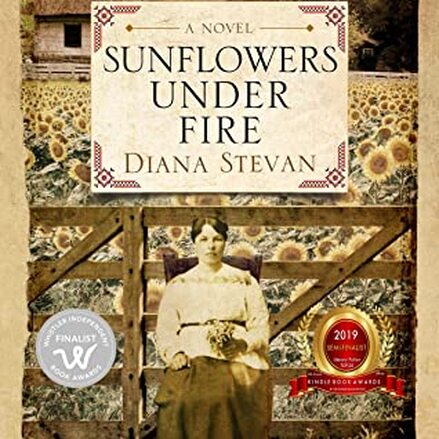
Alex: Do you ever base your characters on people you have encountered in real life?
Diana: I think every writer borrows qualities they’ve recognized in their immediate circles and weaves them into their characters’ behaviour and speech. So, the answer is yes, and from there, my imagination takes over.
For Lukia’s Family Saga, which is biographical fiction, I definitely used what I remembered about my grandmother and her family. I’m currently working on the final book in the series, Paper Roses on Stony Mountain, which brings my father and his family into the picture. It’s been an interesting journey because I’ve had to create dialogue and supporting characters and events that support the facts. In a way, the writing of this saga has given me an opportunity to have a visit with many that are long gone.
Alex: Which was the last book you read that blew you away?
Diana: The one I’m reading now. Half-Blood Blues by Esi Edugyan. I’m blown away by how she writes—her depiction of her characters, their dialogue, and what the setting says about them. So natural and honest. And her rhythm of speech, poetic at times. I’m amazed at her choice of metaphors, so unique, and yet so apt.
Diana: I think every writer borrows qualities they’ve recognized in their immediate circles and weaves them into their characters’ behaviour and speech. So, the answer is yes, and from there, my imagination takes over.
For Lukia’s Family Saga, which is biographical fiction, I definitely used what I remembered about my grandmother and her family. I’m currently working on the final book in the series, Paper Roses on Stony Mountain, which brings my father and his family into the picture. It’s been an interesting journey because I’ve had to create dialogue and supporting characters and events that support the facts. In a way, the writing of this saga has given me an opportunity to have a visit with many that are long gone.
Alex: Which was the last book you read that blew you away?
Diana: The one I’m reading now. Half-Blood Blues by Esi Edugyan. I’m blown away by how she writes—her depiction of her characters, their dialogue, and what the setting says about them. So natural and honest. And her rhythm of speech, poetic at times. I’m amazed at her choice of metaphors, so unique, and yet so apt.
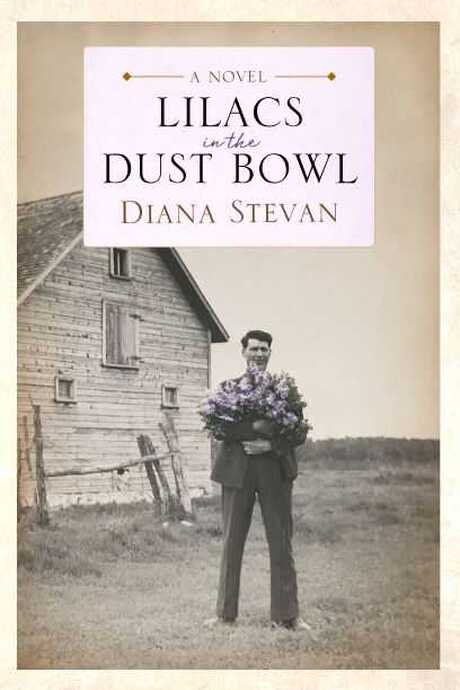
Alex: How do you market your books?
Diana: I market my books largely through social media and the occasional ads on Amazon and Facebook. I’ve had local coverage in newspapers and I’ve had exposure on national TV and radio. Marketing is a dilemma for every writer. If you don’t have a publicity machine behind you, you have to do so much on your own. And I’d much rather be writing.
Alex: What are your interests aside from writing? And what do you do to unwind?
Diana: I’m fortunate in that very early in my life, I adopted exercise as one way to keep my body fit and my mind clear, so I do yoga, pilates, and weights. I also ride my bike, take walks in the forest, and play golf once a week when the weather is good. I also love gardening. It’s my bliss, being open to what Nature can teach me.
I’m so fortunate to have a partner, my husband of 59 years, who’s so disciplined when it comes to exercise and keeping our lives balanced. We both love to read and get together with friends and family.
Alex: Which authors do you particularly admire and why?
Diana: I admire Alice Munro and Margaret Atwood, because of their body of work, their ability to vividly depict the human condition on the page. Also, because they’ve been so prolific. They didn’t stop at one book, they kept going.
Alex: Thank you so much for sharing this with us Diana. It's been fascinating and insightful.
Diana: It's my pleasure, Alex. Thank you for inviting me here.
Diana: I market my books largely through social media and the occasional ads on Amazon and Facebook. I’ve had local coverage in newspapers and I’ve had exposure on national TV and radio. Marketing is a dilemma for every writer. If you don’t have a publicity machine behind you, you have to do so much on your own. And I’d much rather be writing.
Alex: What are your interests aside from writing? And what do you do to unwind?
Diana: I’m fortunate in that very early in my life, I adopted exercise as one way to keep my body fit and my mind clear, so I do yoga, pilates, and weights. I also ride my bike, take walks in the forest, and play golf once a week when the weather is good. I also love gardening. It’s my bliss, being open to what Nature can teach me.
I’m so fortunate to have a partner, my husband of 59 years, who’s so disciplined when it comes to exercise and keeping our lives balanced. We both love to read and get together with friends and family.
Alex: Which authors do you particularly admire and why?
Diana: I admire Alice Munro and Margaret Atwood, because of their body of work, their ability to vividly depict the human condition on the page. Also, because they’ve been so prolific. They didn’t stop at one book, they kept going.
Alex: Thank you so much for sharing this with us Diana. It's been fascinating and insightful.
Diana: It's my pleasure, Alex. Thank you for inviting me here.
